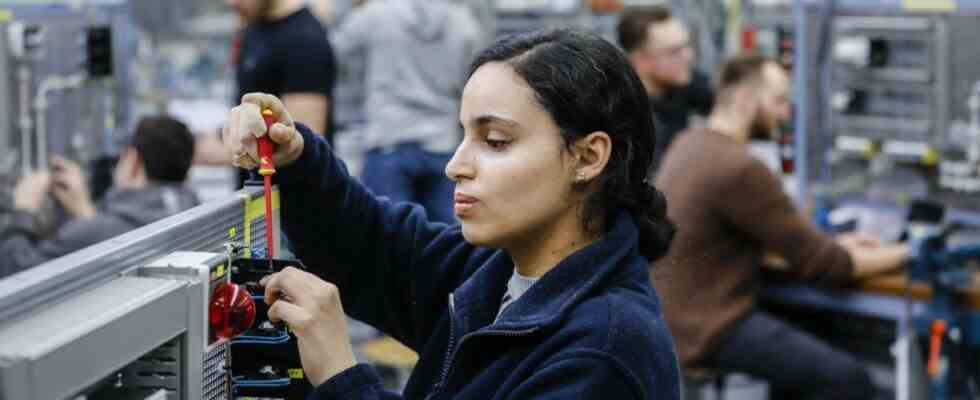According to the Federal Government, skilled workers from abroad should be able to enter Germany more easily in the future. Anyone who already speaks German or works in so-called shortage occupations should in future be allowed to enter the country without proof of work such as an employment contract or training certificate, according to the key issues paper for the future Skilled Immigration Act, which the cabinet agreed on this morning. “I’m sure that this modern skilled labor law will make a real contribution to securing prosperity in Germany,” said Federal Labor Minister Hubertus after the deliberations in the cabinet.
It is planned to introduce a point system similar to that in Canada. The aim is to reduce the obstacles to immigration and make Germany more attractive for skilled workers from abroad. “We will introduce a job search opportunity card based on a transparent, unbureaucratic points system,” the paper says. Qualifications, language skills, professional experience, connection to Germany and age are named as selection criteria.
People who have a professional qualification should also be able to work more flexibly in different jobs in the future. In some sectors, the previously necessary and usually lengthy recognition of qualifications is to be dispensed with entirely if someone has enough experience. Anyone who has yet to obtain a professional qualification should also be able to do so in Germany in the future. The opportunity card is also intended to make it easier to look for a job.
From the point of view of Federal Labor Minister Heil, the planned new rules for the immigration of skilled workers are about securing the country’s prosperity. “Our goal is the most modern immigration law in Europe, because we are competing with many countries for clever minds and helping hands,” said the SPD politician before the deliberations.
The states and municipalities as well as the German economy are also responsible for the implementation. “I want us to see the success of this law on the labor market by 2025 at the latest – and that’s not far off,” said the minister.
Criticism of the planned immigration law for skilled workers comes from the Union
CDU leader Friedrich Merz expressed reservations about the plans of the traffic light coalition in the ZDF morning magazine. He is particularly bothered by the fact that the federal government specifically wants to recruit people from non-EU countries. The freedom of movement for workers applies in the EU, but the conditions in this country are not good because of the bureaucracy and high taxes. In addition, thousands of people were waiting abroad for visas for Germany. “Exhausting the potential would be the first step,” said Merz.
In its coalition agreement, the traffic light coalition has undertaken to put migration policy on a new footing. In addition to the immigration of skilled workers, this also includes the right of residence and a reform of the naturalization rules. Federal Minister of the Interior Nancy Faeser (SPD) wants German citizenship to be obtained after five instead of eight years. It should also be possible to have other citizenships in addition to German. The consultations on this are still in their infancy and are separate from the plans for the immigration of skilled workers.

